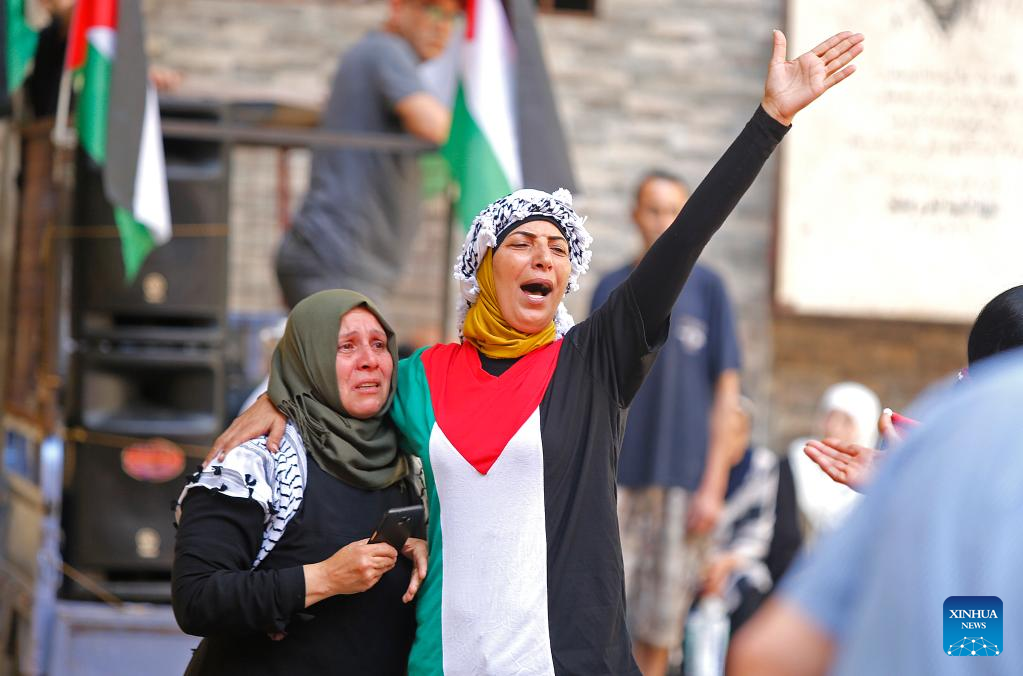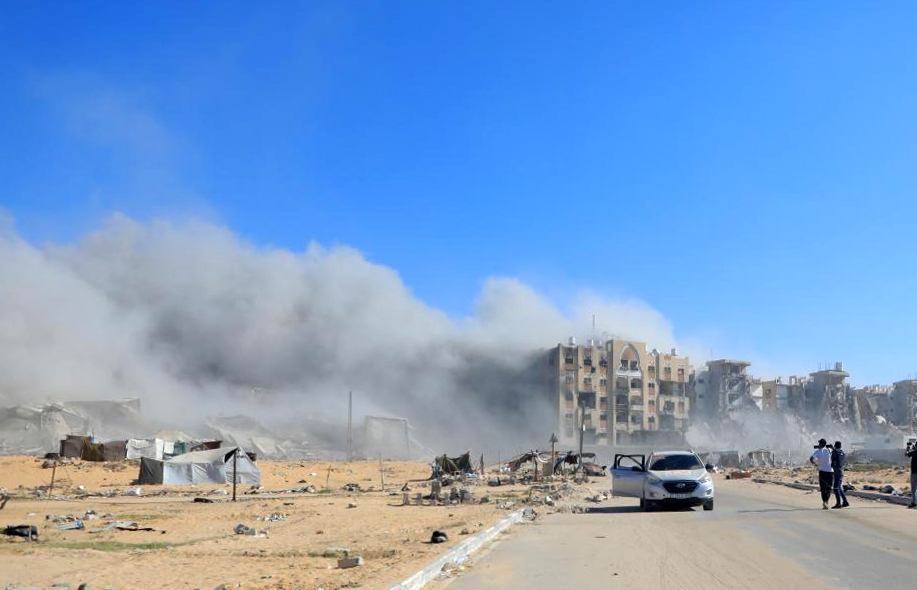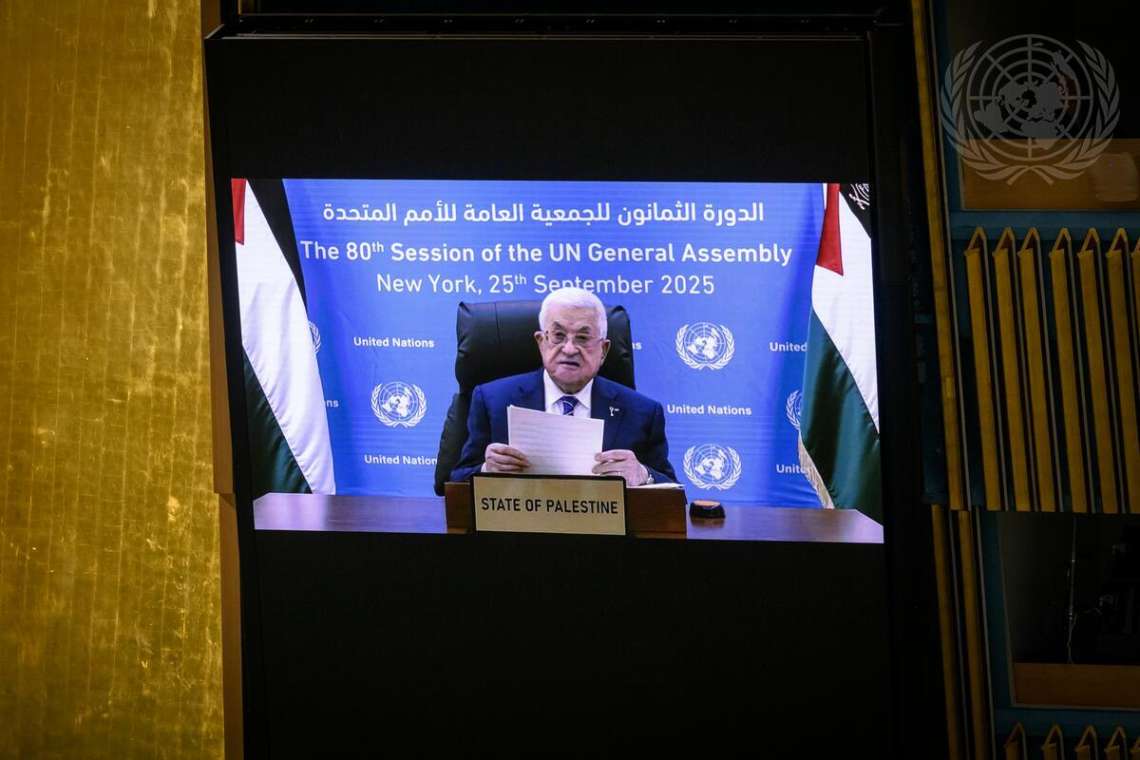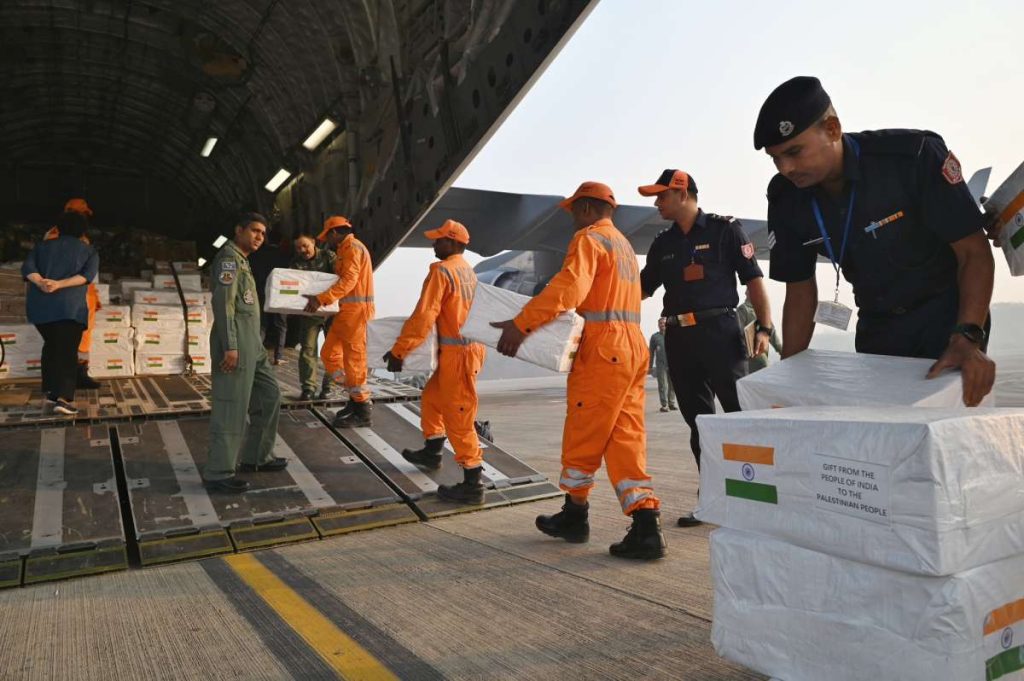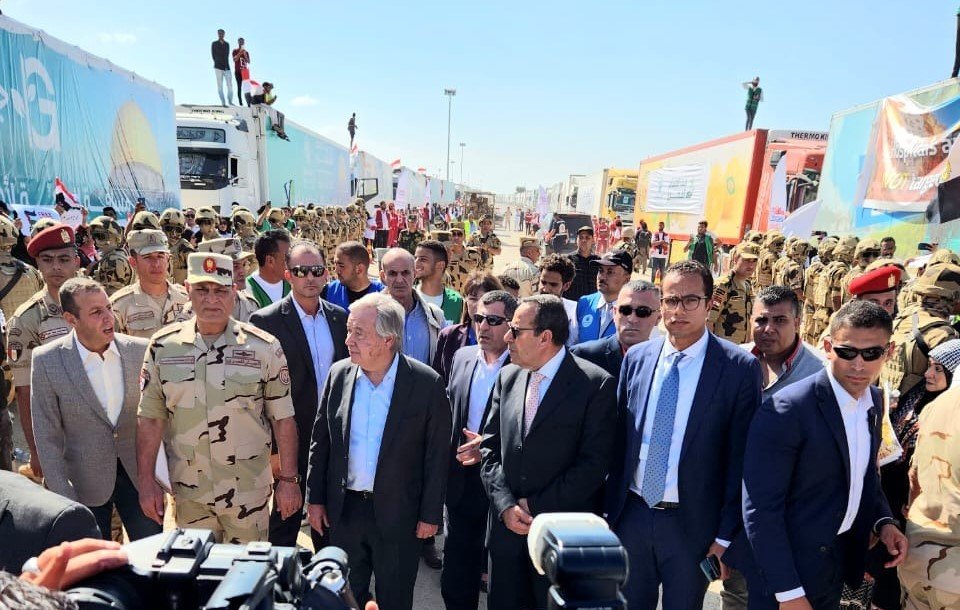For Palestinians and Arabs, the war did not begin on the morning of October 7 with Hamas’s attacks on Israel….reports Sanjeev Sharma
Demonstrations of solidarity with Palestinians have broken out across the Arab world this week, as Israel reels from Hamas’s massive attack and Palestinians in Gaza come under bombardment.
Moroccans, Jordanians and Egyptians have rallied in protests large and small, even as the governments of these countries have built and maintained varying degrees of diplomatic ties with Israel, Vox reported.
And while those demonstrations may seem jarring given the widespread deaths in Israel this week, the fact that some have cheered on violence against civilians may obscure the broader political dynamics at play — both within the Middle East and within the Arab countries themselves, Vox reported.
Hamas’s violence does not reflect the desire of all, or even most, Palestinians who seek rights and freedoms. But the solidarity expressed in these rallies reflects a broader dissatisfaction with how Israel, with Western support, has subjected Palestinians to military occupation since 1967.
The protests also represent a rare space for political expression in largely autocratic states where regimes severely limit such speech, the report said.
For Palestinians and Arabs, the war did not begin on the morning of October 7 with Hamas’s attacks on Israel.
Rather, for them, the war has been ongoing since 1948, when militias expelled Palestinians from their homes and killed tens of thousands in what is called the Nakba or catastrophe. It continued with the 1967 setback — as the Six-Day War is called in Arabic — in which Israel began occupying the West Bank, Gaza, and East Jerusalem, and has carried on through waves of further conflicts and protests, Vox reported.
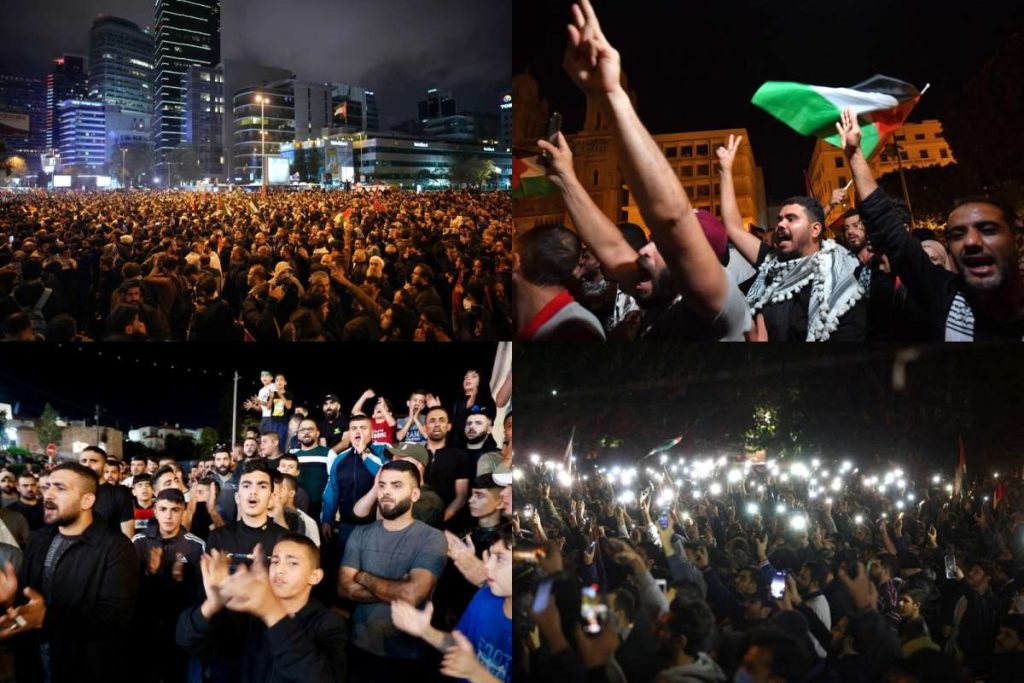
That support is rooted in a history of grassroots support for Palestinians and of Arab strongmen using the cause as a populist rallying point.
“It’s the open wound, the festering sore, on the Arab conscience,” Mouin Rabbani, an analyst of Palestinian politics and co-editor of the web journal Jadaliyya said.
When the then US President Donald Trump focused on a series of normalization deals between Israel and Arab states in 2020, however, he sidelined the cause of Palestine.
Saudi Arabia, which had long emphasized the importance of a Palestinian state, had already been quietly developing extensive business and military relationships with Israel.
Suddenly it seemed possible that the Palestinian cause could be sacrificed by the Arab world’s rulers, Vox reported.
But all of the countries involved in the normalization negotiations — the United Arab Emirates, Bahrain, and Morocco — are autocracies. And their citizens were not as eager to go along with a new Middle East, Vox reported.
In response, the governments of these countries censored criticism of the deals in the press and stifled public protests.
“Activists who were involved in pro-Palestine activism — either through local organizations or through the Gulf Coalition Against Normalization — also reported worsening online harassment, forcing many to take a step back from their activities,” Dana El Kurd, a political scientist at the University of Richmond, writes.
Surveys show how unpopular those accords were. Recent polls show their Arab support has dropped significantly, with just 27 percent of Emiratis and 20 percent of Bahrainis in favor of the accords.
“If you had democracy in the Arab world, you wouldn’t have any normalization,” historian Rashid Khalidi of Columbia University said, Vox reported. “Public opinion is overwhelmingly against normalization with Israel. Overwhelmingly, in every poll in every country.”
The past few days have seen renewed calls for boycotting of Israeli-linked businesses in Bahrain and Qatar, and a resurgence of anti-normalization activism in Gulf countries, El Kurd said. Far from being relegated to the backburner, the Palestinian cause is now front and center in the Arab world. And that is something American policymakers can’t afford to ignore, Vox reported.
What seems certain is that more Arab countries are not likely to normalize with Israel. The ongoing bombardment of Gaza, and a ground assault if one goes ahead, will undermine those prospects further.
“In the short term, the normalization deal with Saudi Arabia is going to be delayed or face some level of obstacle,” El Kurd said.
“Because the whole point of them engaging on this topic is to say, ‘Oh, we’re going to meaningfully change Palestinian living conditions.’ I don’t think that’s within their ability to change, even marginally, at this point.”
It is hard to generalise about “the Arab world”, a collection of 450 million people spread across thousands of kilometres and nearly two dozen countries. But it is safe to say that most Arabs still sympathise with the Palestinian cause, The Economist reported.
Their dispossession remains a totemic political issue across the Middle East, able to mobilise popular anger and protest like little else, The Economist reported.

